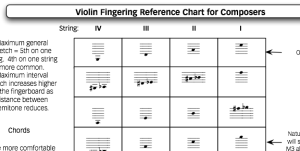Two works for violin and piano have recently been completed.
The first of these is the Violin Concertino: Summer Stories. This work was commissioned by Michael Patterson and Ars Musica Australis. Mike Patterson particularly wanted a work in which the solo violin part was not too difficult – that is, it would be playable by violinists of standard between Grades 7 and A.Mus.A. AMEB levels. The work is subtitled “Summer Stories” because each of its three movements relates in some way to an aspect of summer.

The second new work for violin and piano is Maralinga. Maralinga is a place in the South Australian desert, and was the site for secret British nuclear testing in the 1950s and 1960s. Not a happy place in Australian history for either the Aboriginal inhabitants of the area, nor the Australian service personnel who were unwittingly used as guinea pigs for the effects of radiation.
Maralinga was written for Lara St. John, who will premiere the piece on 20 March, 2009. It was commissioned by the Wolf Trap Foundation for the Performing Arts.
